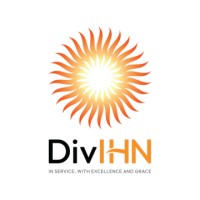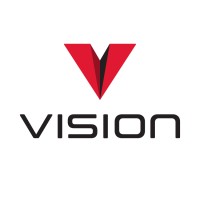

Data Governance Lead
⭐ - Featured Role | Apply direct with Data Freelance Hub
This role is for a Data Governance Lead in Torrance, CA, for 6 months (contract to hire) with a pay rate of $68-$76/hr. Key skills include data governance, quality strategy, compliance (GDPR, HIPAA), and stakeholder engagement.
🌎 - Country
United States
💱 - Currency
$ USD
-
💰 - Day rate
608
-
🗓️ - Date discovered
August 28, 2025
🕒 - Project duration
More than 6 months
-
🏝️ - Location type
On-site
-
📄 - Contract type
Unknown
-
🔒 - Security clearance
Unknown
-
📍 - Location detailed
Torrance, CA
-
🧠 - Skills detailed
#Data Integrity #Automation #Data Lifecycle #Data Warehouse #Compliance #Data Governance #GDPR (General Data Protection Regulation) #Data Quality #Data Architecture #Business Analysis #Data Catalog #Data Management #"ETL (Extract #Transform #Load)" #Data Ingestion #Strategy #Data Integration #Data Engineering #Data Science #Data Security #Metadata #Classification #Security
Role description
Location: Torrance, CA (on-site 4 days/week)
Duration: 6 months (Contract to Hire)
Contract Pay Range: $68-$76/hr
Direct Hire Salary: 141K-158K plus 14-20% bonus, and excellent benefits package
Daily Tasks Performed:
• Work with Business and IT teams, including Business Data Owners, Data Stewards, Technical Data Stewards, Catalog Architects/Engineers, Platform Owners, and Project/Product Managers, to implement Data Quality rules, metadata ingestion, profiling, sampling, reports, and Data Governance dashboards.
• Building Data Governance Policies, Procedures & Standards
• Building Data Catalog & Quality User Journey, dashboards
• Building Data Governance, Catalog & Quality Operating models and support related projects
• Working with business & IT stakeholders to serve Data Governance, Catalog, Quality & Compliance needs
Position Success Criteria
1. Governance Lead: Lead data stewards, architects & engineers, ensuring effective collaboration and coordination among team members. Set clear goals, provide guidance and mentorship, and evaluate individual and team performance.
1. Data Quality: Develop and maintain a robust data quality strategy & roadmap that aligns with the organization's overall business objectives. This includes importing data models, defining metadata standards, and ensuring data integrity, security, quality, profiling & sampling.
1. Data Governance: Advance data governance policies, procedures, best practices, and ensure compliance throughout the organization. Collaborate with stakeholders (data stewards, data governance council, etc.) to define data standards, data classification, data retention, data lifecycle management, and advance data catalog usage.
1. Data Integration & Marketplace: Oversee the design of data integration processes, ensuring seamless data flow and interoperability between systems and the marketplace. Work closely with the data engineering and architecture team to ensure effective data and metadata integration and transformation.
1. Data Security and Privacy: Ensure the implementation of data security and privacy measures, in compliance with relevant regulations (such as GDPR, HIPAA, etc.), to protect sensitive data from unauthorized access or breaches.
1. Data Analytics and Reporting: Collaborate with business analysts and data scientists to define data requirements for analytics and reporting purposes. Oversee and support the design of data analytics platforms, data warehouses, and reporting solutions.
1. Stakeholder Engagement: Engage with business & legal stakeholders - including executives, managers, and end-users, to understand their data needs and provide strategic recommendations. Collaborate with cross-functional teams to define and execute data-driven initiatives.
1. Vendor Management: Evaluate and select third-party vendors or solutions for data-related products or services. Manage vendor relationships, contracts, and service level agreements (SLAs) to ensure successful delivery.
1. Continuous Improvement: Stay updated with emerging data management trends, technologies, and best practices. Identify opportunities for process improvement, automation, and optimization within the data architecture team.
1. Collaboration and Communication: Foster a culture of collaboration, knowledge sharing, and effective communication within the team and across departments. Facilitate regular team meetings, workshops, and training sessions to enhance technical skills and foster innovation.
Location: Torrance, CA (on-site 4 days/week)
Duration: 6 months (Contract to Hire)
Contract Pay Range: $68-$76/hr
Direct Hire Salary: 141K-158K plus 14-20% bonus, and excellent benefits package
Daily Tasks Performed:
• Work with Business and IT teams, including Business Data Owners, Data Stewards, Technical Data Stewards, Catalog Architects/Engineers, Platform Owners, and Project/Product Managers, to implement Data Quality rules, metadata ingestion, profiling, sampling, reports, and Data Governance dashboards.
• Building Data Governance Policies, Procedures & Standards
• Building Data Catalog & Quality User Journey, dashboards
• Building Data Governance, Catalog & Quality Operating models and support related projects
• Working with business & IT stakeholders to serve Data Governance, Catalog, Quality & Compliance needs
Position Success Criteria
1. Governance Lead: Lead data stewards, architects & engineers, ensuring effective collaboration and coordination among team members. Set clear goals, provide guidance and mentorship, and evaluate individual and team performance.
1. Data Quality: Develop and maintain a robust data quality strategy & roadmap that aligns with the organization's overall business objectives. This includes importing data models, defining metadata standards, and ensuring data integrity, security, quality, profiling & sampling.
1. Data Governance: Advance data governance policies, procedures, best practices, and ensure compliance throughout the organization. Collaborate with stakeholders (data stewards, data governance council, etc.) to define data standards, data classification, data retention, data lifecycle management, and advance data catalog usage.
1. Data Integration & Marketplace: Oversee the design of data integration processes, ensuring seamless data flow and interoperability between systems and the marketplace. Work closely with the data engineering and architecture team to ensure effective data and metadata integration and transformation.
1. Data Security and Privacy: Ensure the implementation of data security and privacy measures, in compliance with relevant regulations (such as GDPR, HIPAA, etc.), to protect sensitive data from unauthorized access or breaches.
1. Data Analytics and Reporting: Collaborate with business analysts and data scientists to define data requirements for analytics and reporting purposes. Oversee and support the design of data analytics platforms, data warehouses, and reporting solutions.
1. Stakeholder Engagement: Engage with business & legal stakeholders - including executives, managers, and end-users, to understand their data needs and provide strategic recommendations. Collaborate with cross-functional teams to define and execute data-driven initiatives.
1. Vendor Management: Evaluate and select third-party vendors or solutions for data-related products or services. Manage vendor relationships, contracts, and service level agreements (SLAs) to ensure successful delivery.
1. Continuous Improvement: Stay updated with emerging data management trends, technologies, and best practices. Identify opportunities for process improvement, automation, and optimization within the data architecture team.
1. Collaboration and Communication: Foster a culture of collaboration, knowledge sharing, and effective communication within the team and across departments. Facilitate regular team meetings, workshops, and training sessions to enhance technical skills and foster innovation.






